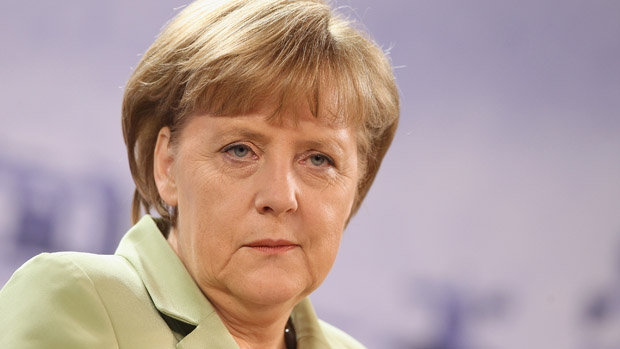Merkel ready to let UK exit EU over migration rule changes
Ministers 'to draw up German-compliant package' after Chancellor Angela Markel issues warning

A free daily email with the biggest news stories of the day – and the best features from TheWeek.com
You are now subscribed
Your newsletter sign-up was successful
German Chancellor Angela Merkel would rather see the UK leave the European Union than end the right to free movement of labour within the EU, it has been claimed.
Merkel reportedly warned David Cameron that he is approaching a "point of no return" if he continues to push for migration reform that requires fundamental changes to EU principles.
The chancellor made the comments on the fringes of the latest EU summit in Brussels last week, according to Der Spiegel.
The Week
Escape your echo chamber. Get the facts behind the news, plus analysis from multiple perspectives.

Sign up for The Week's Free Newsletters
From our morning news briefing to a weekly Good News Newsletter, get the best of The Week delivered directly to your inbox.
From our morning news briefing to a weekly Good News Newsletter, get the best of The Week delivered directly to your inbox.
The German news magazine says it is the first time Merkel has acknowledged that the UK’s exit from the EU was possible.
Cameron wants to renegotiate the terms of the UK’s EU membership before holding an in-out referendum. He has said that the freedom of movement of workers would be at the "very heart" of his renegotiation strategy.
But a German government source said: "Should Cameron persist, Chancellor Angela Merkel would abandon her efforts to keep Britain in the EU. With that, a point of no return would be reached. That would be it then."
Two Cabinet ministers told The Sunday Times that new proposals would have to be drawn up that maximise curbs within the existing rules.
A free daily email with the biggest news stories of the day – and the best features from TheWeek.com
"The focus is on drawing up a German-compliant package of measures," said one. "Cameron needs to square Merkel or we won’t get anything. We’ve got to stretch the existing rules to their limits."
This might include banning EU migrants unless they have a job and deporting them if they cannot support themselves after three months.
Another minister suggested that the focus would be on the original understanding of freedom of movement to work.
"The assumption was that you moved around for work, not to come on the chance that you could find a job. We're looking at whether you can restrict new arrivals to those with jobs," they said.
A Downing Street spokesman said Cameron would make a speech on immigration before Christmas and stressed "You can be sure he will always put Britain first".
-
 ‘Zero trimester’ influencers believe a healthy pregnancy is a choice
‘Zero trimester’ influencers believe a healthy pregnancy is a choiceThe Explainer Is prepping during the preconception period the answer for hopeful couples?
-
 AI surgical tools might be injuring patients
AI surgical tools might be injuring patientsUnder the Radar More than 1,300 AI-assisted medical devices have FDA approval
-
 9 products to jazz up your letters and cards
9 products to jazz up your letters and cardsThe Week Recommends Get the write stuff
-
 Epstein files topple law CEO, roil UK government
Epstein files topple law CEO, roil UK governmentSpeed Read Peter Mandelson, Britain’s former ambassador to the US, is caught up in the scandal
-
 Iran and US prepare to meet after skirmishes
Iran and US prepare to meet after skirmishesSpeed Read The incident comes amid heightened tensions in the Middle East
-
 Israel retrieves final hostage’s body from Gaza
Israel retrieves final hostage’s body from GazaSpeed Read The 24-year-old police officer was killed during the initial Hamas attack
-
 China’s Xi targets top general in growing purge
China’s Xi targets top general in growing purgeSpeed Read Zhang Youxia is being investigated over ‘grave violations’ of the law
-
 Panama and Canada are negotiating over a crucial copper mine
Panama and Canada are negotiating over a crucial copper mineIn the Spotlight Panama is set to make a final decision on the mine this summer
-
 Why Greenland’s natural resources are nearly impossible to mine
Why Greenland’s natural resources are nearly impossible to mineThe Explainer The country’s natural landscape makes the task extremely difficult
-
 Iran cuts internet as protests escalate
Iran cuts internet as protests escalateSpeed Reada Government buildings across the country have been set on fire
-
 US nabs ‘shadow’ tanker claimed by Russia
US nabs ‘shadow’ tanker claimed by RussiaSpeed Read The ship was one of two vessels seized by the US military